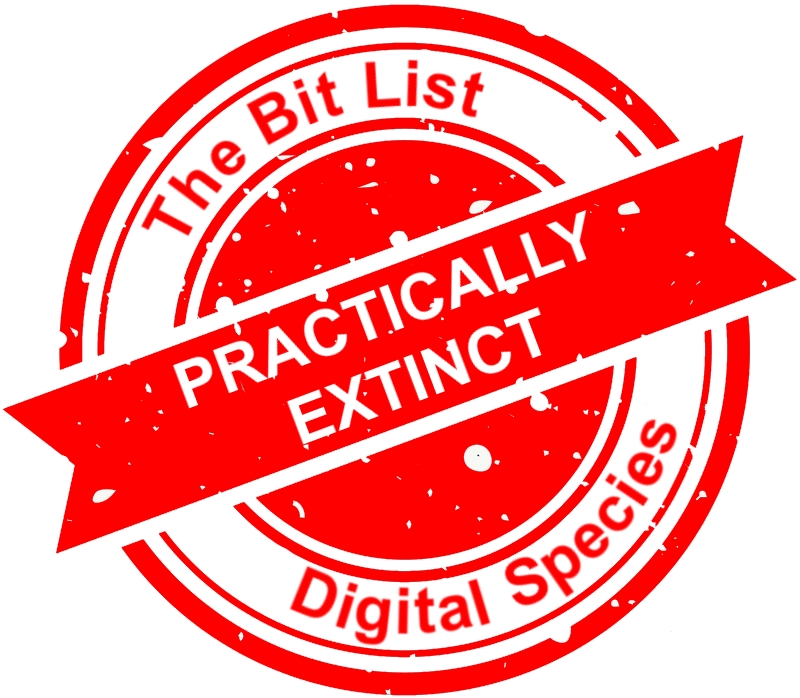Shut Down or Discontinued Video Games
|
|
 |
|
|
Video games where the servers have been shut down or where the game has been delisted across digital platforms and is no longer able to be legally purchased directly from the digital marketplace (loss has already happened). It includes older and non-current video games designed and played on platforms and devices that are no longer supported. This group also includes older editions of games that have been delisted and replaced by newer or remastered editions. |
||
|
Digital Species: Gaming |
Trend in 2023:
|
Consensus Decision |
|
Added to List: 2017 (rescoped 2023) |
Trend in 2024:
|
Previously: Critically Endangered |
|
Imminence of Action Action is recommended within twelve months, detailed assessment is a priority. |
Significance of Loss The loss of tools, data or services within this group would impact on a large group of people and sectors. |
Effort to Preserve | Inevitability Loss seems likely: by the time tools or techniques have been developed the material will likely have been lost. |
|
Examples City of Heroes, The Matrix Online, Club Penguin, P.T., Sims 1, Metro 2033, Darkspore, Maplestory 2. |
||
|
‘Critically Endangered’ in the Presence of Good Practice Lack of skills, commitment or policy from corporate owners; emulation pathway; access to source code; IPR supportive of preservation; support of grassroots efforts; support for preservation from game publishers/developers; removal of Always-Online DRM. |
||
|
2023 Review This entry was added in 2017 under the Gaming species under the title ‘Old or Non-current Offline Video Games’ and was rescoped in 2023. The 2023 Council noted that the original description and scope of the entry conflated several issues and was unclear in its purpose, referring both to games that have experienced loss and older games that are still available. The 2023 change of risk classification from Critically Endangered to Practically Extinct reflects the adjusted scope as games that fall under this entry have already experienced loss, in terms of servers, the actual game and users. Efforts to keep these games ‘alive’ or in circulation are reliant on legally dubious measures such as private servers and key reselling. It was also decided to remove reference to the age of the video game in this entry given that there has been an increase in server-reliant games shutting down within a year or two of launch that are more at risk than older games that are still being sold. |
||
|
2024 Interim Review The 2024 Council identified a trend towards even greater risk based on shifts in business models and increased litigation over the last year, resulting in more shutdowns which impact preservation efforts. It also raises time sensitivity for action; if there are no efforts to preserve and those existing are further shutdown, this raises the likelihood of loss. |
||
|
Additional Comments The key element of this entry is that loss has already happened. Whilst there are numerous hobbyists working on preserving individual games and servers, the critical mass of users has now been lost for these games. Additionally, whilst the work being done by hobbyists is often vital to the survival of these games, the legality of these projects are in question and are often prone to shutting down without warning. Organizations like the Videogame Heritage Society provide a space to share advice and guidance on preserving video games but the sheer breadth of shut down and discontinued games means that a collaboration between hobbyists, organizations and game developers is what is required to begin solving this issue. It is also worth noting that Always-Online DRM is a key issue in this area as if the servers shut down where a game has this type of DRM, then even the singleplayer part of the game can no longer be played without DRM circumvention, which is not legal. Darkspore is a key example of this happening. A unique example to point out here around shut down MMOs is Maplestory 2, which closed its global services in May 2020, less than two years after the game received a global release. Nexon, the game’s publisher, released a number of assets including designs, concept art and illustrations on their website as well as uploaded all the music onto YouTube. These assets were released for non-commercial and personal use only. Case Studies or Examples:
See also:
|
||









































































































































